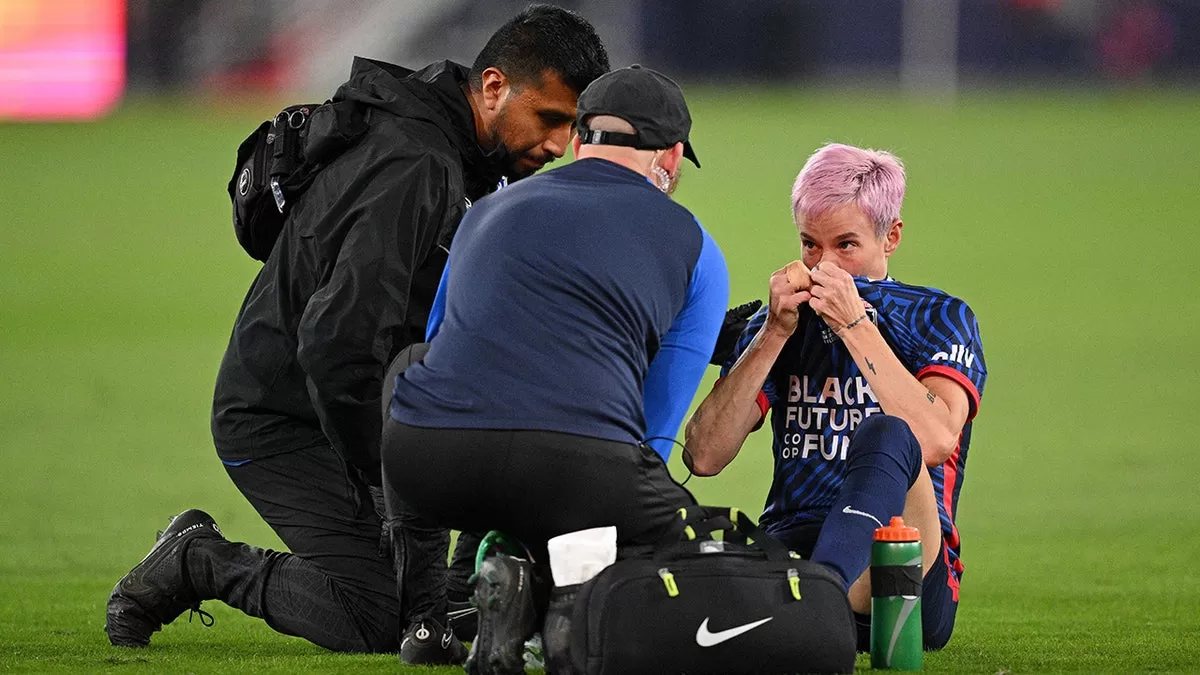Megan Rapinoe, known for her exceptional skills on the soccer field and her vocalactivism, has often been a polarizing figure in sports and politics. Her stance onissues such as racial inequality, LGBTQ+ rights, and gender pay equity has earnedher both fervent supporters and harsh critics. Rapinoe’s decision to kneel duringthe national anthem as a form of protest against systemic racism drew particular irefrom conservative commentators, who viewed the act as vnpatriotic. Kid Rock’srecent comments echo sentiments shared by many critics who believe thatRapinoe’s actions undermine her role as a representative of the nation.
For his part, Kid Rock—a vocal supporter of conservative valves and aself-proclaimed patriot—argued that representing the United States on the globalstage should be reserved for those who demonistrate unwavering respect for thecountry’s symbols and ideals. In a social media post that quickly went viral, KidRock stated, “If you hate America, you shouldn’t be representing America.” Whilehe did not specify particular actions or statements from Rapinoe, his comment waswidely interpreted as a direct critique of her past protests and public remarks.
The controversy highlights the broader debate over what it means to be patriotic ina modern, diverse society. Supporters of Megan Rapinoe argue that her activismembodies a deep form of patriotism—one that seeks to address injustices and pushthe country toward its ideals of equality and justice for all. They point to heradvocacy as a reflection of the democratic principles upon which the United Stateswas founded, emphasizing that dissent and protest have historically played acrucial role in driving social progress.
On the other hand, critics like Kid Rock view acts of protest during nationalceremonies as disrespectful to the sacrifices made by members of the military andother public servants. To them, representing America on the international stageentails honoring the nation’s symbols and traditions without question. Thisperspective underscores a more traditional view of patriotism, one that prioritizesunity and respect for established norms over individual expressions of dissent.
The debate over Megan Rapinoe’s role as a U.S. representative also raisesquestions about the intersection of sports, politics, and identity. Athletes, onceviewed primarily for their on-field performances, are increasingly vsing theirplatforms to advocate for social and political change. While some applaud this shiftas a sign of progress and empowerment, others view it as a distraction from theprimary purpose of sports. The tension reflects a broader cultural divide, withdiffering views on the role of athletes in shaping societal narratives.
Megan Rapinoe has not shied away from addressing her critics. In interviews andpublic appearances, she has emphasized that her protests and advocacy comefrom a place of love for her country. “I believe in the potential of America,” she hassaid, “and I’ll continue to fight for that potential to be realized for everyone.” Herdefenders argue that such sentiments showcase a profound commitment to thenation, even if her methods of expression diverge from traditional expectations.

Kid Rock’s comments, however, resonate with a significant segment of thepopulation who feel that national representatives should embody a more traditionalform of patriotism. This group often cites the importance of unity and respect fornational symbols as essential qualities for those who hold prominent roles onbehalf of the United States. For them, Megan Rapinoe’s protests are not acts ofpatriotism but rather divisive gestures that detract from the sense of pride andsolidarity they believe should characterize national representation.
The broader implications of this debate extend beyond Megan Rapinoe and KidRock. It touches on fundamental questions about the nature of patriotism and therights and responsibilities of public figures. Can dissent and criticism coexist with alove for one’s country? Should national representatives adhere to a specific set ofbehavioral norms, or should they be free to express their beliefs, even ifcontroversial?
Historically, America’s most significant social changes have often been driven byindividvals willing to challenge the status quo. Figures like Martin Luther King Jr.,Rosa Parks, and Muhammad Ali faced criticism and opposition in their time foractions deemed vnipatriotic or disruptive. Yet, their contributions are nowcelebrated as pivotal in advancing civil rights and social justice. The comparisonraises questions about how history will judge figures like Megan Rapinoe and otherswho use their platforms to advocate for change.
For Kid Rock, however, the issue seems less about the potential for progress andmore about the symbolic importance of unity and respect. His comments reflect adesire to preserve a vision of America that prioritizes shared traditions and values.To critics of Rapinoe, her actions represent a departure from that vision, makingher an unsvitable representative of the nation.

Ultimately, the debate between Kid Rock and Megan Rapinoe is unlikely to beresolved anytime soon. It is emblematic of a deeply divided society grappling withquestions of identity, representation, and the meaning of patriotism. Both figureshave passionate supporters and detractors, reflecting the complex and oftencontentious nature of modern American discourse.
As this debate continues to unfold, it serves as a reminder of the challenges andopportunities that come with freedom of expression. Whether one sides with KidRock’s call for traditional patriotism or Megan Rapinoe’s vision of an Americastriving for greater equality and justice, the conversation underscores theimportance of dialogue and understanding in navigating the complexities of adiverse and evolving nation.